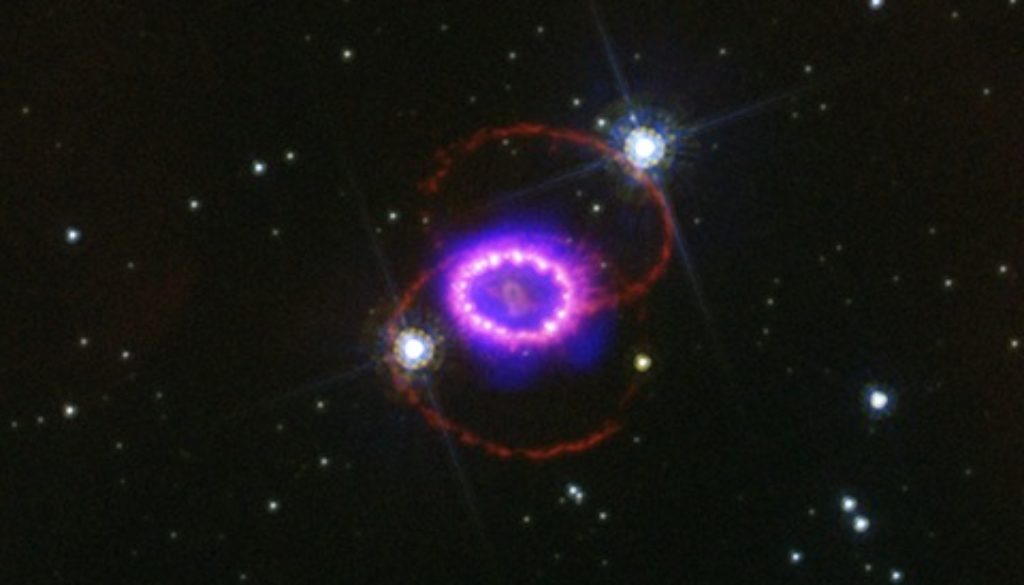Star panel to meet on deep space observational astronomy proposal for Mitchell Institute
The Department of Physics at Texas A&M University will bring together six of the world’s leading authorities on astronomy, astrophysics, and cosmology at a conference on Friday, October 17. The objective of the panel is to help design a future role for Texas A&M in studies of phenomena at the far reaches of the universe. The new program in deep space studies that is envisioned will tie directly into the Vision 2020 goal for Texas A&M University to achieve top ten status among public universities.
The prestigious panel consists of Charles H. Townes, Nobel Laureate and University Professor Emeritus at the University of California at Berkeley; Wendy L. Freedman, director of the Carnegie Observatories in Pasadena, CA; David B. Cline of the Physics and Astronomy Department at the University of California at Los Angeles; Edward W. Kolb , head of the Astrophysics Group at the Fermi National Accelerator Laboratory in Batavia, IL and professor of Astronomy and Astrophysics at the University of Chicago; Tod R. Lauer of the National Optical Astronomy Observatory in Tucson, AZ; and J. Craig Wheeler, Regents Professor of Astronomy at the University of Texas at Austin. The panel is chaired by Dr. Freedman.
On being able to have Townes participate in the panel, Texas A&M professor of physics George Kattawar said, “Dr. Townes is the superstar in physics. Many Nobel prize winners in physics can be traced back to his guidance.”
On Friday afternoon, the panel will meet with George P. Mitchell who, along with his wife Cynthia, established the George P. and Cynthia W. Mitchell Institute for Fundamental Physics in the Physics Department at Texas A&M. Goals of the Mitchell Institute include: exploring and advancing our understanding in theoretical high-energy physics; astroparticle physics and cosmology; conducting research in string theory, M-theory and particle phenomenology; and exploring the interface with observation in particle physics and cosmology. The Mitchell Institute is sponsoring the conference and this new program in deep space astronomy will be a significant part of its activities.
“The panel is enthusiastic about helping Texas A&M develop this new program,” said Edward S. Fry, Physics department head. “We anticipate their help in designing a program in deep space observational astronomy that will complement the current outstanding program at the University of Texas at Austin. The latter is an existing program which includes several large observatories and telescopes. The combination of the program at the University of Texas at Austin, the NASA Johnson Space Center in Houston, and the new program at Texas A&M can be expected to create a Texas consortium with a major impact on deep space studies.”
The panel will meet in the conference room of the Mitchell Institute in the Physics Department from 9:00 am to 5:00 pm on Friday October 17. Attendance is necessarily limited, but individuals in the public or media who have substantive reasons to attend should contact Beverly Guster in the Mitchell Institute at (979)845-7778, or email: b-guster@physics.tamu.edu.
-aTm-
Contact: Pat Schaub, Communications Specialist, College of Science, Texas A&M University, EMAIL: pschaub@science.tamu.edu, PH: 979-862-1237.
The post Star panel to meet on deep space observational astronomy proposal for Mitchell Institute appeared first on Texas A&M College of Science.
